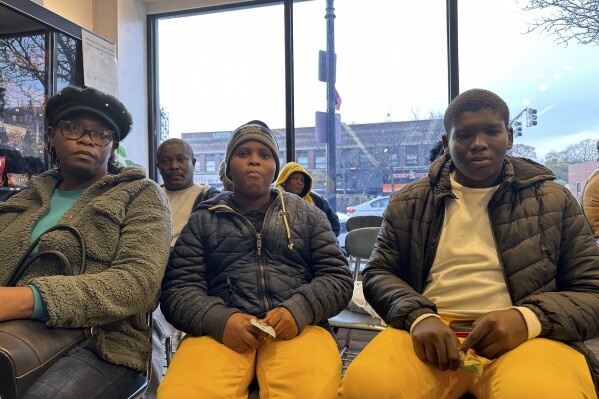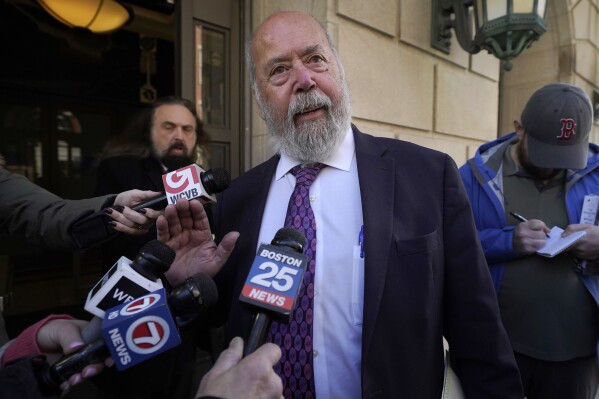Massachusetts lawmakers fail to approve $250M in emergency shelter aid
BOSTON (AP) — The Massachusetts Legislature wrapped up its formal session for the year without a deal on a $2.8 billion spending bill that included hundreds of millions of dollars to address the state’s emergency shelters that are buckling under a crush of migrant and homeless families.
Both the House and Senate bills would steer $250 million toward the shelter system, but a conference committee was unable to resolve other differences early Thursday.
Lawmakers embarked for the holiday break with uncertainty clouding the state’s response to shelter emergency.
Some groups heaped scorn on lawmakers for failing to act. The Massachusetts Teachers Association said in a statement that it was “shocked, and frankly, disgusted” by lawmakers’ inaction on the supplemental budget.
 A cannabis worker died on the job from an asthma attack. It’s the first reported case in US
A cannabis worker died on the job from an asthma attack. It’s the first reported case in US
 Advocates scramble to aid homeless migrant families after Massachusetts caps emergency shelter slots
Advocates scramble to aid homeless migrant families after Massachusetts caps emergency shelter slots
 2 accused of running high-end brothel network in Massachusetts and Virginia appear in court
2 accused of running high-end brothel network in Massachusetts and Virginia appear in court
“This is another stain on a Legislature that struggles to meet its obligation to serve the public good,” the union that represents 117,000 members said in a statement.
Across the region, advocates relied on a patchwork of temporary shelters including churches, hospital waiting rooms and even airport lounges after Massachusetts’ emergency shelter system hit a state-imposed limit of 7,500 families last week, forcing some homeless people to be put on a waiting list.
The spike in demand is being driven in part by migrant families entering the state. About half of the current shelter caseload are new arrivals to Massachusetts, according to Democratic Gov. Maura Healey’s administration.
The administration is working with groups to find temporary housing but has been reluctant to release some details of its plan, including the location of a clinic it sponsored with the Department of Homeland Security to help migrants obtain work authorizations.
Lawmakers don’t formally convene again for votes until the new year, but they could resolve their differences in informal sessions. However, legislative rules make it easier to derail bills in informal sessions.
Disclaimer: The copyright of this article belongs to the original author. Reposting this article is solely for the purpose of information dissemination and does not constitute any investment advice. If there is any infringement, please contact us immediately. We will make corrections or deletions as necessary. Thank you.





